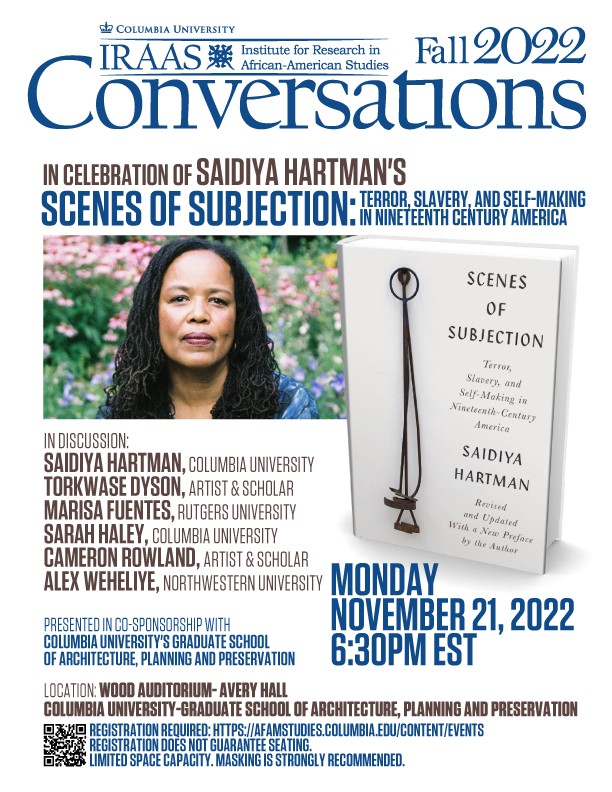

Where Scenes of Subjection and Lose Your Mother deal more intimately with the workings of enslavement, Wayward Lives, her most recent book, attends to the vibrant urban lives of black women born after emancipation. Always, as she writes, from ‘within the circle’ of black diasporic culture and thought.

Never with the clinical detachment of an outsider. Over the last two decades, Hartman has made it her life’s work to gaze incredibly closely. As Chicago-based poet and vocalist Jamila Woods sings, Look what they did to my sisters, last century, last week. In her 2008 essay, ‘Venus in Two Acts’, she calls this methodology ‘critical fabulation’: an ‘impossible writing that attempts to say that which resists being said’ an account of history written both ‘with and against the archive’, often bending time, rendering the past, present and future coterminous.

Her mastery, however, is in how she does this, how her encounters with archival material – inventories documenting the enslaved, photographs, songs, names, or the sheer lack of them – become stimuli for a narrative technique that stories the silence of loss without speaking over it. With an emphasis on the word life, Hartman is relentless in fleshing out the ongoing intricacies with which the trade formed – and persists in forming – the racialised relations of our present world.

Across each of her books, Scenes of Subjection: Terror, Slavery and Self-Making in Nineteenth-Century America (1997), Lose Your Mother and Wayward Lives, Beautiful Experiments: Intimate Histories of Social Upheaval (2019), Hartman’s writing unpacks what she terms ‘the afterlife of slavery’. Over the course of the production, Thompson offers excerpts from Hartman’s 2007 book Lose Your Mother: A Journey Along the Atlantic Slave Route, in which Hartman shares her own account of tracing the same history, in Ghana, years earlier.īorn and raised in New York City, a place she still calls home, Hartman is a professor at Columbia University within the department of English. Woven carefully into the play’s text, Hartman’s words guide Thompson as she embarks on a cargo ship voyage, with the intention of recharting the path of the trans-Atlantic slave trade. The first time I encountered Saidiya Hartman, she was a voice in salt., an award-winning play by artist and performer Selina Thompson.


 0 kommentar(er)
0 kommentar(er)
